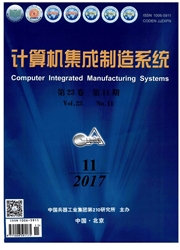

 中文摘要:
中文摘要:
在双渠道供应链中,利用零售商贴近顾客的特点,制造商把电子渠道的订单交由零售商来完成,并根据订单数目给予零售商补贴。在需求不确定情形下,用主从博弈和贝叶斯方法对此现象进行研究,发现制造商调高其需求规模预测值将导致电子渠道和零售渠道的价格升高,电子渠道的需求减少,而制造商给予零售商的单位补贴与电子渠道和零售渠道的价格正相关,与电子渠道的需求负相关,但不影响零售渠道的需求。利用数值算例,分析了电子渠道的市场份额、制造商和零售商对需求的预测误差、相关系数等对制造商和零售商收益的影响。
 英文摘要:
英文摘要:
In dual-channel supply chain, retailers were close to the customers, manufacturers outsourced its' distribution of electronic channels to retailers and retailers got subsidies from manufacturers according to the order volume of electronic channels. Under uncertain demand, this phenomenon was studied by Stackelberg game and Bayesian methods. Study results showed that if manufacturers were optimistic about future demand, the price of electronic channels and retail channels would be increased, and the demand of electronic channels reduced. Retailers' units subsidies given by manufacturers were positively associated with the price of electronic channels and retail channels, and were negatively related to the demand of electronic channels, but has no influence on the demand of retail channel. With numerical examples, the influencing factors of manufacturers and retailers' profit were analyzed, such as the market share of electronic channels, demand forecast error of manufacturers and retailers, the correlation coefficient, etc.
 同期刊论文项目
同期刊论文项目
 同项目期刊论文
同项目期刊论文
 期刊信息
期刊信息
